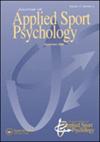Cultural competence in a multinational group of sport psychology professionals
IF 2.7
2区 心理学
Q2 HOSPITALITY, LEISURE, SPORT & TOURISM
引用次数: 2
Abstract
Abstract Sport psychology scholars and practitioners (SPPs) now recognize the importance of cultural competence (CC). However, only a few SPPs have deliberately centered CC in their practice. The purpose of this study was to understand how SPPs conceptualize and develop CC within their professional practice. Our study is grounded in a critical realist ontology and framed within the consensual qualitative research method (CQR). Using a semi-structured interview guide, we interviewed 25 globally situated SPPs (13 males, 12 females) with three to 40 years of professional experience (17.83, SD = 10.88) residing on four different continents. We constructed seven categories to provide a snapshot of how SPPs conceptualize, develop, and emphasize CC as an ethical and moral obligation to engage in effective professional practice. The participating SPPs described how CC is contextual and encompasses one’s cultural knowledge, awareness, and skills developed from professional and personal cultural interactions and investment in cultural professional development. The SPPs shared how CC plays a relevant role in their sport psychology practice. We also highlighted how culture and CC are frequently conceptualized and experienced from a one-dimensional perspective, overlooking the importance of how cultural identities and modes of being interact within and between SPPs and clients or participants. The implications for individuals and professional bodies are discussed for professional development, training, and effective practice. Lay summary: Cultural competence is an ethical and moral obligation for SPPs to engage in effective professional practice. In this study, a multinational group of SPPs shared how they conceptualize, develop, and implement cultural competence within their professional practice. Applied Implications The development of and deliberate consideration of CC into applied and scholarly practice is an ethical and moral responsibility It is important for SPPs to invest in developing their CC, becoming comfortable with making mistakes, and engaging in difficult conversations. It is important for SPPs to ground their CC development in their own reflections as well as personal and professional cultural encounters.跨国运动心理学专业人员群体的文化竞争力
本文章由计算机程序翻译,如有差异,请以英文原文为准。
求助全文
约1分钟内获得全文
求助全文
来源期刊
CiteScore
6.90
自引率
9.40%
发文量
39
审稿时长
>12 weeks
期刊介绍:
The Journal of Applied Sport Psychology (JASP) is a refereed journal designed to significantly advance thought, theory, and research on applied aspects of sport and exercise psychology. Submissions such as experimental studies, qualitative research, correlational studies, case studies, position papers, critical reviews, theoretical developments specific to applied research conducted in sport and/or exercise settings, or having significant applied implications to sport and exercise, are appropriate content for the JASP. Please see the recent Editorial for further details on the aims and scope of the journal. JASP is a non-proprietary journal that is an official publication of the Association for Applied Sport Psychology (AASP). The purpose of AASP is to promote the development of psychological theory, research, and intervention strategies in sport and exercise psychology. The Journal is a direct benefit of membership in AASP and is received by its student and professional members. The publisher of the JASP is Taylor and Francis, Inc. of Philadelphia, PA.

 求助内容:
求助内容: 应助结果提醒方式:
应助结果提醒方式:


